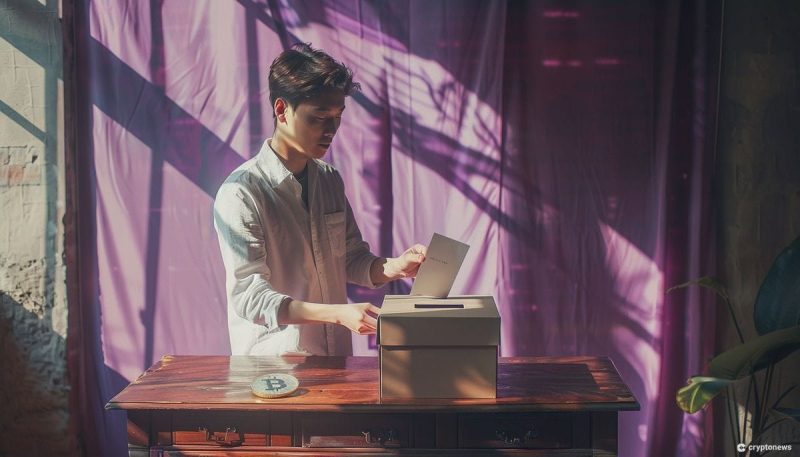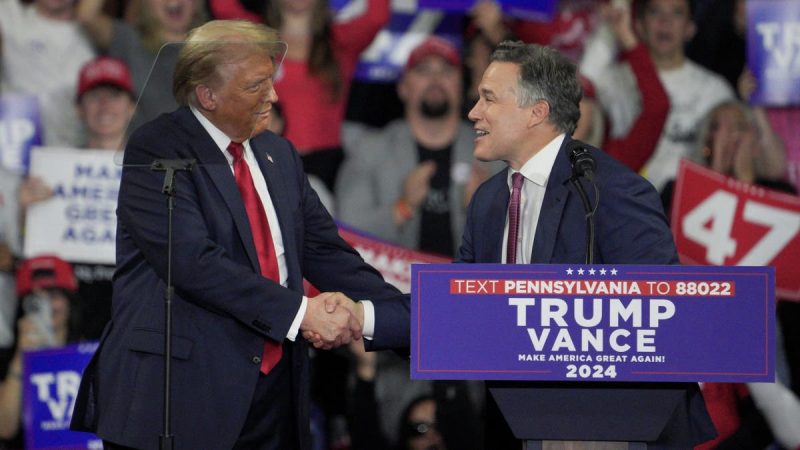
South Korean Election: How Will 6 Million Crypto Traders Vote?
South Korean election results could hinge on the voting intentions of the country’s 6 million crypto traders, reports claimed April 9.
The nation goes to the polls on April 10 to vote in legislative elections, with both major parties making crypto-related manifesto pledges.
South Korean Election: Crypto a Key Battleground?
Crypto policy has changed rapidly in South Korea in the past few years, due mainly to closely fought elections.
While older citizens outnumber the young in South Korea, younger citizens tend to be politically unaffiliated.
As such, the youth is considered a decisive swing vote group – and one that politicians are hoping to woo with pro-crypto policies.
The Democratic Party, Hanguk Kyungjae reported, has told voters it will push regulators to approve Bitcoin and altcoin spot ETFs if it wins a majority in the National Assembly.
The party of President Yoon Seok-yul, the People’s Power Party, has promised to once again defer the introduction of capital gains tax on crypto-related profits.
South Koreans head to the polls on Wednesday for the legislative elections, two years after Yoon took office. If the opposition wins 200 seats or more out of 300, there is a risk Yoon could face impeachment.https://t.co/aL3LNsXgPb
— Hyunsu Yim (@hyunsuinseoul) April 9, 2024
Crypto a Political Football?
Politicians have used crypto tax as a political football in recent years, deferring its introduction on multiple occasions.
As things stand, crypto traders are set to begin paying tax on their profits from January 1, 2025.
However, these plans could well be set for further revision regardless of April 10’s vote.
People’s Power representatives have also said they want to create regulations that will help protect crypto investors.
The media outlet wrote that “attention” in South Korea was now firmly “focused on the votes of nearly 6 million crypto investors.”
Democratic Party leaders have also promised to “significantly expand” the domestic crypto market if they triumph.
They say they will do more to allow institutional investors to access crypto markets. They also want to legislate for the issuance of security tokens.
With a single day left to go to the general election, a record turnout in early voting is being interpreted in various ways by political parties as well as media outlets.https://t.co/zF9taUFW6l
— The Korea Herald 코리아헤럴드 (@TheKoreaHerald) April 9, 2024
Crypto at the Ballot Box
Crypto was also high on the agenda for presidential candidates in the 2022 South Korean election. Yoon won the 2022 election by the narrowest of margins.
Both he and his closest rival made a number of crypto-related manifesto promises, only a few of which Yoon has since carried out.
Analysts say that the result of all of these pro-crypto promises could be significant for domestic markets. Mirae Asset ETF analyst Yoon Jae-hong said:
“If pledges such as the approval of the Bitcoin spot ETF are realized, it is expected that a certain portion of the demand currently concentrated on the ETF futures will shift to the spot markets.”
Crypto investors expressed their cautious optimism, with a 31-year-old Seoul-based trader surnamed Kim (given name withheld) telling Cryptonews.com on April 9:
“I’m very skeptical about the reasons politicians have for making these promises. They seem to be opportunistic and quite desperate attempts to win our votes. But if the results mean I get to pay less tax, or that the markets are boosted by an ETF approval, people like me certainly stand to make gains.”
The battlegrounds for South Korea’s parliamentary elections that will determine how much power President Yoon Suk Yeol wields include the Yongsan district in central Seoul, where he keeps his office https://t.co/KQTDoUllnz
— Bloomberg (@business) April 9, 2024
Investors Unsure About Politicians’ Promises
The newspaper, meanwhile, quoted an unnamed “full-time” crypto investor as saying:
“If pledges to protect investors, such as tax deferral […] are applied, many investors will be able to enjoy significant benefits.”
Dolby Kong, the Founder of DBK Ventures and a research partner for the crypto exchanges Gopax and Binance, said:
“Both parties are showing a competitive approach to making virtual asset-related pledges. This itself can help boost the legitimacy of crypto [in certain circles].”
But others expressed deep distrust, claiming that these pledges were little more than a “cheap” effort to “buy” people’s votes. Some called the promises “empty talk.”
And one crypto community leader was quoted as saying:
“In this election, too, there are no in-depth crypto-related pledges. Both parties are only waving carrots [at young voters]. It’s an unfortunate situation. It’s unclear whether any of these pledges will ever be fulfilled.”
South Korean election observers think that the People’s Power Party has a slight edge heading into the vote.
However, the Democratic Party is going into the election with a 41-seat lead over its biggest rival.
The composition of the National Assembly on April 9, 2024. Dark blue dots represent the Democratic Party (142 seats). People’s Power Party (101) seats are shaded a lighter red. (Source: Direct700)
And this means a major swing will be required nationwide if the People’s Power Party is to win an outright majority.
Political Campaigns in South Korea Offer Crypto Perks, Target Bitcoin ETF Access
Political campaigns in South Korea are leveraging the country’s prominent crypto market to attract voters ahead of the parliamentary election.#CryptoNews #SouthKoreahttps://t.co/Ly8Rz7kwcL
— Cryptonews.com (@cryptonews) April 8, 2024
Earlier this week, the Seoul Rehabilitation Court noted that there had been a 31% rise in “personal rehabilitation” (pre-bankruptcy) applications in FY2023.
The court said “crypto investment” was driving a rise in rehabilitation-related case numbers for people aged 20-29.
The post South Korean Election: How Will 6 Million Crypto Traders Vote? appeared first on Cryptonews.

